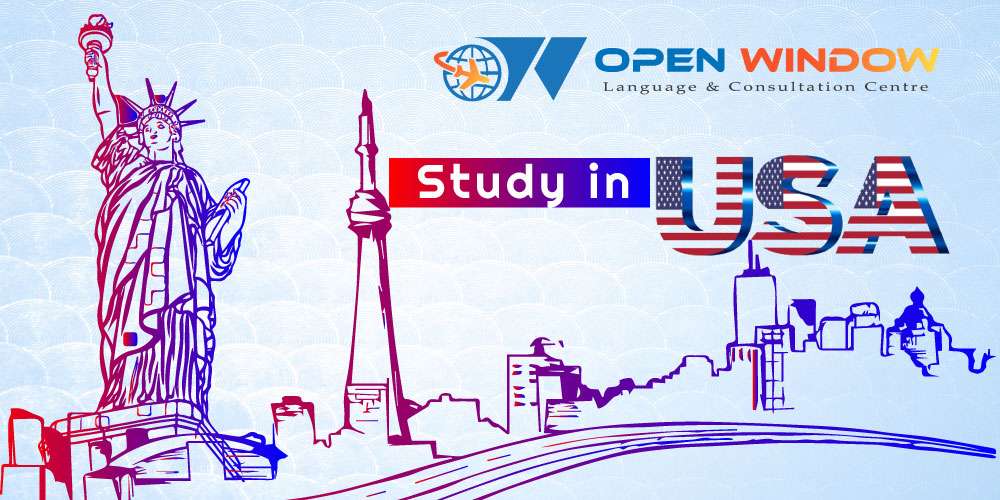Study in Singapore
Study in Singapore – Singapore is a small but dynamic city-state that has established itself as a leading center of education in Asia. With its excellent universities, innovative teaching methods, and multicultural society, Singapore offers a unique and exciting environment for international students. In this introduction to studying in Singapore, we will explore the benefits of studying in Singapore, the application process, and important considerations for international students.
Why study in Singapore?

1. Local universities are among the best in the world
Singapore is known as an important business and education hub. With that in mind, it’s hardly surprising that local universities are ranked among the best in the world, often earning their places in the top 15 best higher education institutions.
Universities in Singapore are especially renowned for their courses in Business and Management.
2. English is widely spoken
You don’t need to worry about language barriers while studying in Singapore. English is spoken almost everywhere, from restaurants to banks, from public institutions to shopping centres, and so on.
According to recent data, English has actually become the most commonly spoken language in Singaporean homes.
3. Advantageous scholarships and government subsidies
There’s no way around it: tuition fees in Singapore are high. But that shouldn’t discourage you. As an international student, you can apply for government subsidies, which significantly reduce the costs of your education.
Scholarships are another excellent option to lower your expenses. You can contact the universities for more details or check out scholarship programmes on Scholarshipportal.com.
4. Singapore is one of the most prosperous states
Singapore has developed a stable and healthy economy, based on a solid infrastructure and the proper implementation of modern technology. This fact makes the island city-state an attractive destination for people who want to earn high wages and enjoy a high living standard.
In 2020, for example, the average salary in Singapore was around 5,700 USD per month. So if you plan to stay here after graduation, you’ll be fairly compensated for your work and knowledge.
5. Fun activities and attractions will keep you entertained
After you finish classes, Singapore offers a wide range of activities and places where you can relax and enjoy your free time. From restaurants to parks, from museums to cinemas — it’s all there, waiting for you.
We recommend visiting the Marina Bay Sands, the Gardens by the Bay, the Orchard Road, the Singapore Flyer, Sentosa Island, the Asia Civilisations Museum, etc.
How to Apply in Singapore
If you’ve decided to study a Master’s degree at a university in Singapore, you will have to gather the right documents to prove that you fit the university requirements. Provide complete personal information, previous qualifications, financial information, and a personal statement.
What documents do I need to provide to apply in Singapore?
To apply to a university in Singapore you will likely be asked to provide some of the following documents:
- birth certificate;
- recent photos;
- your passport or national identity card;
- one or more reference letters from past employers or teachers;
- copies of past diplomas or certificates, including your graduated Bachelor’s degree;
- academic transcripts;
- letter of intent;
- Curriculum Vitae;
- Some form of proof that you can support your stay in the country during your studies.
Depending on the subject or specialization of your chosen Master’s, you might also be asked to provide scores for additional tests like the GRE, GMAT or LSAT. Check if your programme requires any of these, or others.
The list of documents depends on the specific requirements of universities in Singapore so you might be asked to include additional documents. It’s also likely you’ll have to provide official English translations of your documents, or translations in the local language.
Prove your English skills

Because you’ll study an international degree in English, you’ll have to present a language certificate. Some popular options for international students are IELTS, TOEFL or C1 Advanced language certificates. You’ll have to meet a minimum language score set by the university, and your test scores shouldn’t be older than 1-2 years. If you don’t meet the minimum language requirements, you will have to improve your skills and scores by taking an English preparation course.
Application deadlines for Singapore
The deadlines for applying to a Master’s in Singapore are usually during summer (June-July), or in winter (January-February). Keep in mind that some universities don’t have application deadlines, which means you can apply whenever you are ready.
To avoid delays or missed deadlines send your required documents with plenty of time in advance.
Living in Singapore

Let’s take a closer look at tuition fees and living costs in Singapore:
Tuition fees
There is no online database with average fees at universities in Singapore. Still, international students should know that studying here is anything but cheap. Let’s take the National University of Singapore (NUS) as an example:
- Tuition for Bachelor’s degrees: 17,750–24,300 EUR/year; Degrees in Medicine, Dentistry, and Music cost between 75,700–99,450 EUR/year
- Tuition for Master’s degrees: 22,200–40,800 EUR/year; Dentistry degrees costs around 59,600 EUR/year
These fees can change every year; always check the official university page to see how much you need to pay. As an international student, you can apply for a subsidy from the Singapore Ministry of Education (MOE) and significantly reduce your tuition costs.
If you enrol at a private university in Singapore be prepared to pay even higher tuition fees.
Living costs
Due to the high standard of life, the costs of living are also high in Singapore. As an international student, you can spend anywhere between 700 and 1,500 EUR per month, depending on the type of housing and your lifestyle.
Here’s a breakdown of average living expenses in Singapore:
- accommodation (on-campus housing): 200–385 EUR/month
- accommodation (privately rented flat): 1,100–3,300 EUR/month
- utilities (only if you rent a flat): 80–140 EUR/month
- food and groceries: 175–275 EUR
- monthly transport pass: 75 EUR; students may get a discount
- three-course meal for two at a mid-range restaurant: 43.50 EUR
- 1 loaf of bread: 1.40 EUR
- 1 litre of milk: 1.90 EUR
- 1 kg of apples: 2.80 EUR
- 1 kg of bananas: 2.10 EUR
- 1 cappuccino: 3.50 EUR
Work while study in Singapore

International students in Singapore are allowed to work part-time for up to 16 hours a week during term time and full-time during vacation periods, subject to certain conditions. These conditions include being enrolled in a full-time program at a recognized educational institution, having a valid student pass, and obtaining approval from the institution’s student services department.
The types of part-time jobs available for international students in Singapore include positions in retail, hospitality, food and beverage, events, and customer service. Students can also find work as research assistants, tutors, or administrative assistants in their universities. However, there are some restrictions on the types of jobs that international students are allowed to do, such as those that involve manual labor or jobs that are deemed to be inappropriate for students.
It is important to note that international students are not allowed to work in Singapore without obtaining the necessary work permits. Student Pass holders can only work with the approval of the institution they are studying at, and must apply for a work permit through the Ministry of Manpower. Employers are also required to obtain work permits for their international student employees.
Finding a part-time job in Singapore can be challenging, but there are many resources available for students to explore job opportunities. The Career Services department of the student’s institution is a good place to start, as they may have job listings or be able to provide guidance on the job search process. Online job portals and recruitment agencies can also be useful resources for students looking for part-time work.
Working part-time while studying in Singapore can be a great way for international students to earn some extra income, gain valuable work experience, and develop important skills.
Singapore At a Glance
| Course Duration | Intake | Application Fee | Requirements |
| 2/3 Years (Bachelors) 1 Year (Masters) | April, August, October | 30 to 90 (SGD) | Academic- Above 50% |
| Language Proficiency | Tution Fee (Yearly) | Living Cost (Yearly) | Visa Application |
| IELTS-6+, TOEFL-70+ PTE-50+ (Waiver Possible) | 20000 to 50000 (SGD) | 10000 to 18000 (SGD) | 60 (SGD) |
| Air Ticket | Processing Time | Part Time Work | Post Study Work Permit |
| 30000 to 80000 (SGD) | 3 Months | 0 | 3 Months |
Our Affiliated University List
| Sr No | University Name | City |
| 1 | National University of Singapore | Singapore |
| 2 | Technical University of Munich Asia | Munich Asia |
| 3 | S P Jain School of Global Management | |
| 4 | SIM Global Education | |
| 5 | Curtin Singapore | Singapore |
| 6 | Management Development Institute of Singapore (MDIS) | Singapore |
| 7 | PSB Academy | |
| 8 | Raffles Design Institute | |
| 9 | William Angliss Institute | |
| 10 | EAIM- East Asia Institute of Management | |
| 11 | Nanyang Institute of Management | |
| 12 | Educare Global Academy (EGA) |



